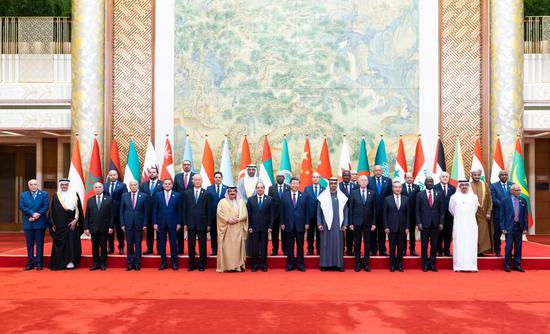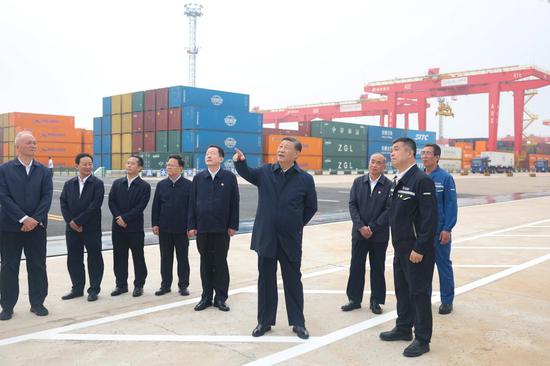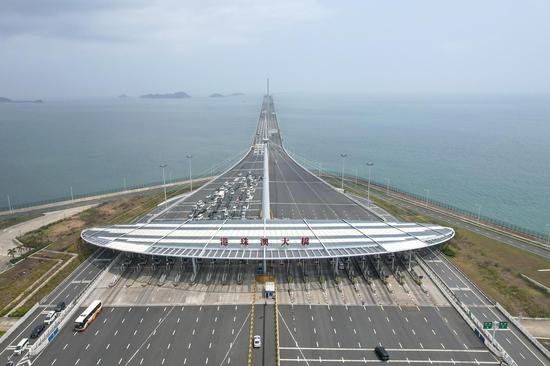China reiterated on Monday its indisputable sovereignty over Nanhai Zhudao (the South China Sea islands), dismissing Philippine President Ferdinand Marcos' speech concerning the South China Sea issue at the Shangri-La Dialogue.
Marcos said at a keynote address at the 21st Shangri-La Dialogue on Friday that the Philippines' territorial claims are backed by UNCLOS and the South China Sea "arbitral award" made in 2016, according to a transcript published by the Philippine Presidential Communications Office.
In response, the Foreign Ministry spokesperson said in an online statement that China, which was the first to have discovered, named and explored and utilized the South China Sea islands and relevant waters, has indisputable sovereignty over the islands and sovereign rights and jurisdiction over relevant waters.
The Philippines' territory is defined by a series of international treaties, the spokesperson said, adding that China's Nansha islands and Huangyan island are beyond the limits of the Philippine territory established by the treaties.
The treaties include the 1898 Treaty of Peace between the United States of America and the Kingdom of Spain, the 1900 Treaty between the United States of America and the Kingdom of Spain for Cession of Outlying Islands of the Philippines, and the 1930 Convention between His Majesty in Respect of the United Kingdom and the President of the United States regarding the Boundary between the State of North Borneo and the Philippine Archipelago.
The Philippines has occupied by force some islands and reefs of China's Nansha islands, seriously violating China's sovereignty and sovereign rights and international law, the spokesperson said.
Reiterating that the "South China Sea arbitral award" is illegal, null and void, the spokesperson said the Philippines breached UNCLOS and other international law, as well as the Declaration on the Conduct of Parties in the South China Sea by initiating the arbitration unilaterally.
The Philippines has breached its commitment and the common understandings with China, frequently provoked China at sea, brought in forces outside the region to flex muscles and spread disinformation to vilify China and mislead the international perception, the spokesperson said.
The spokesperson also slammed the US for "playing an extremely ignoble role" by supporting the Philippines and using the South China Sea issue to drive a wedge between China and other countries in the region.
With the joint efforts of China and ASEAN countries, the situation in the South China Sea is generally stable and there has been no issue at all regarding the freedom of navigation and overflight in the South China Sea that countries enjoy in accordance with law, according to the statement.
The statement quoted the spokesperson as saying China will continue to firmly defend its territorial sovereignty and maritime interests and rights, saying Beijing remain committed to properly handling maritime disputes and differences through negotiation and consultation with countries directly concerned on the basis of respecting historical facts.
The spokesperson urged the Philippines to stop maritime infringement activities and provocations at once, and return to the right track of handling maritime disputes and differences properly through dialogue and consultation as soon as possible.


















































 京公网安备 11010202009201号
京公网安备 11010202009201号